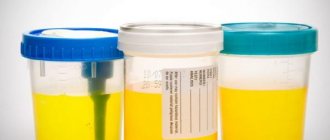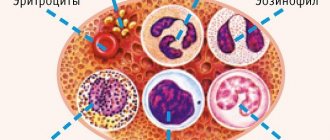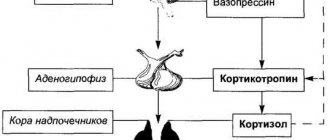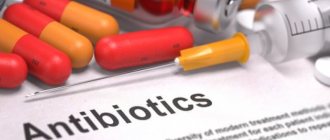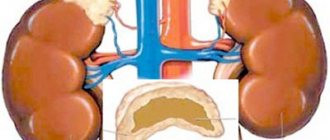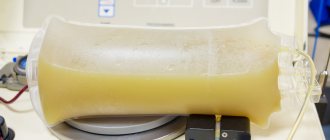What is thyroid-stimulating hormone responsible for?
This biologically active substance is produced by the pituitary gland and is responsible for the functioning of the thyroid gland. Activates the synthesis of T4 (l-thyroxine) and T3 (triiodothyronine). TSH is produced by the anterior pituitary gland. Function of thyroid-stimulating hormone: promotes the production of glucose, controls the synthesis of red blood cells, stimulates metabolism . The amount of the substance depends on thyreostatin and thyreoliberin. It is synthesized by basophilic large cells with secretory granules. Some of these substances account for up to 10 percent of the mass of the glandular tissue of the thyroid gland.
TSH is a glycoprotein, the chemical composition is a protein with a carbohydrate component. Molecular weight is approximately 30 kDa. The biologically active substance contains α and β subunits. The first has the same structure as part of luteinizing (LH), human chorionic (hCG), follicle-stimulating (FSH) gonadotropin. The β-component is needed for receptor identification of target cells - thyrocytes of the thyroid gland. TSH receptors are located on the epithelial cells of the thyroid gland. It affects the adenohypophysis, leading to inhibition of its release.
The effect of TSH on the production of thyroid hormones
Thanks to this biological substance, iodine from the blood plasma enters the thyroid cells. Function of TSH: acceleration of the production of phospholipids, thyroglobulin, nucleic acids, increased blood supply to the organ. The release of the synthesizing substance is under the control of the central nervous system (CNS) and neurosecretory cells of the hypothalamus. When their deficiency occurs in the body, proliferation develops - the growth of thyroid tissue (it greatly increases in size, doctors call this condition a goiter).
In the presence of immune disorders, the body synthesizes antibodies to thyroid-stimulating hormone (to receptors). Antibodies are a type of immunoglobulin that binds antigens (substances that may be foreign). In this case, the immune system perceives TSH receptors as cells to be destroyed. There are two types of antibodies: to stimulate the production of thyroid hormones and to inhibit the synthesis of active substances.
Synthesis of sex and gonadotropic hormones
The menstrual cycle and the general gynecological well-being of a woman are also influenced by TSH . When the amount becomes lower or higher than normal, it can lead to serious problems with women's health. With a chronic lack of TSH, which is caused by pathologies of the hypothalamus and pituitary gland, secondary hypothyroidism occurs.
A decrease in T3 and T4 levels provokes a drop in the level of testosterone-estrogen-binding globulin (TESG), which causes an increase in the concentration of testosterone in a woman. Such problems can lead to negative consequences:
- uneven discharge during menstruation (scanty as well as heavy);
- an increase in cycle duration associated with slow development of the follicle in the ovary;
- uterine bleeding that is not related to menstruation;
- slight discharge during menstruation, caused by an underdeveloped endometrium, decreased mucus production in the uterus;
- reluctance to have sex, decreased libido (sexual desire).
With a regular excess of the substance, which is caused by a pituitary adenoma, pathologies that are not characteristic of hyperthyroidism appear:
- amenorrhea - absence of menstruation;
- irregular cycle;
- painful, scanty discharge during menstruation, weakness, general malaise;
- infertility due to impaired secretion of gonadotropic substances.
Formation of secondary sexual characteristics
When the level of thyroid-stimulating hormone is outside the normal range, a number of health-threatening disorders develop. In case of deficiency, estradiol is replaced by an inactive substance - estriol. The latter weakly stimulates the synthesis of luteinizing (LH) and follicle-stimulating (FSH) hormones. This leads to the following problems in girls:
- delayed puberty;
- late onset of the first menstruation (menarche);
- poor development of the mammary glands;
- reduced clitoris, labia.
If a female child (under 8 years old) has a long-term excess of thyroid-stimulating substance, then signs of early puberty often appear . High levels contribute to an increase in the amount of estrogens, FSH, LH. In this case, the development of secondary sexual characteristics is observed:
- earlier onset of menarche;
- breast enlargement;
- the appearance of hair in the armpits and pubic area.
Thyroid-stimulating hormone test
This research is in great demand in medical practice. It can be used to determine whether the thyroid-stimulating gland is functioning correctly. Her condition is being checked in adults and children. To examine the obtained sample, ELISA (enzyme-linked immunosorbent assay) or RIA (radioimmunoassay) is used. Some medical institutions in the country conduct neonatal screening for newborns, which helps determine TSH levels and confirm or exclude congenital hypothyroidism.
Indications for use
Thyrotropin plays an important role in the functioning of the thyroid gland, so it is necessary to closely monitor the level of the hormone. An analysis of the content in the human body is prescribed for the following deviations:
- amenorrhea;
- goiter (or diffuse toxic goiter);
- dysfunction of the muscular system;
- high levels of prolactin;
- Basedow-Graves disease;
- hidden hypothyroidism;
- meningitis;
- infertility;
- decrease in normal body temperature.
Signs of elevated TSH
The excess is determined using a special laboratory test. The first signs that may indicate an increase in the level of the substance:
- pallor or yellowness, swelling of the skin;
- loss of appetite, attacks of nausea, constipation;
- slight stiffening of the neck;
- sleep disturbance (insomnia at night, daytime sleepiness);
- decrease in temperature;
- decrease in hemoglobin in the blood;
- weakness, decreased activity, fatigue;
- inattention, apathy, lethargy, irritability;
- An increased concentration of thyroid-stimulating hormone leads to obesity.
Articles on the topic
- Tanakan - instructions for use and side effects, mechanism of action, contraindications and analogues
- Testosterone analysis in women - when to prescribe and how to take it, reasons for increased and decreased values
- Melatonin - instructions for use of tablets, dosage, contraindications and reviews
Symptoms of low TSH
When a deficiency of thyroid-stimulating hormone occurs, it is characterized by a number of specific symptoms. The main signs of deficiency are the following factors:
- hair loss;
- regular state of fatigue;
- sudden weight loss;
- dry skin;
- tremor;
- depression;
- numbness of the limbs;
- the appearance of edema;
- impotence;
- slow speech;
- cold intolerance;
- excessive sweating;
- acceleration of metabolism (metabolism);
- weakening of bone tissue (sometimes osteoporosis);
- insomnia.
Symptoms of hypothyroidism with elevated TSH levels
Hypothyroidism can be latent, in which the level of TSH is higher than normal, and the hormones T3 and T4 are normal, and obvious, when TSH is elevated and the level of the hormones T3 and T4 is decreased.
What does a high level of thyroid-stimulating hormone mean, and what are the signs of this condition?
Disruption of the gland, its hypofunction leads to an increase in the level of TSH in the blood. The general condition of the body does not change, the level of other hormones remains normal.
The initial stages of elevated TSH levels are not accompanied by symptoms. In case of prolonged deviation from the norm, the body gives a signal about problems. Alarm calls can come from various organ systems.
- Nervous system: absent-mindedness, general weakness, decreased performance and memory impairment;
- Cardiovascular system: slow heartbeat, low blood pressure;
- Digestive system: lack of appetite, constipation, enlarged liver;
- Reproductive system: disruptions in the menstrual cycle in women, infertility.
The appearance of a person changes. Hair falls out, skin peels, swelling appears. Despite the lack of appetite, the patient’s weight increases, and obesity develops, which cannot be corrected.
Preparation for the procedure
In order for the analysis results to be accurate, you need to adhere to several important points during preparation. Here are a few nuances of the preparatory stage:
1. Eating food before testing does not affect the results, but any ingredient in the diet may affect the reagents. For this reason, doctors recommend doing the procedure on an empty stomach. It is advisable not to eat high-fat foods a couple of days before the test and drink plain purified water.
2. The maximum amount of thyroid-stimulating substance is produced in the early morning and after midnight, the minimum in the evening. It is better to donate blood in the morning or in the first half of the day (from 8 to 12 o'clock).
3. To monitor changes in the level of the substance, venous blood is collected at the same time.
4. It is not recommended to smoke or drink alcohol several days before the procedure.
5. Determination of TSH levels in women is carried out throughout the entire menstrual cycle. Results may be affected by pregnancy and diet (low-calorie diet).
6. Excessive physical activity and negative emotions can affect the results of diagnostic measures.
7. Before the procedure, the doctor must find out whether the patient has taken any medications recently. Some medications can affect the thyroid gland.
TSH analysis: indications and preparation rules
A low TSH in 7 out of 10 cases indicates an overactive thyroid gland and a high level of iodine-containing hormones. Hormonal imbalance affects the functioning of internal organs, worsens well-being and quality of life. You should contact an endocrinologist if you have the following symptoms:
- light intolerance;
- cardiopalmus;
- sleep problems;
- loose stools;
- neck deformity;
- menstrual irregularities;
- decreased sex drive;
- unmotivated aggression;
- bulging eyeballs;
- tremor of the upper extremities;
- fast fatiguability;
- causeless anxiety;
- decreased vision;
- temperature fluctuations without signs of acute respiratory infections.
A clear clinical picture indicates low thyrotropin and increased concentrations of T3 and T4. A hormonal test is prescribed for:
- assessment of the functional state of the thyroid gland;
- diagnosis of endocrine pathologies in infants;
- control of hormonal therapy for hyper- and hypothyroidism;
- identifying female infertility and assessing the effectiveness of its therapy.
Thyrotropin is characterized by daily fluctuations in biosynthesis. The maximum concentration of the hormone is observed at 2-4 am. By 6-8 am, the thyrotropin level decreases slightly. The lowest TSH is determined between 17-00 and 19-00.
For analysis, blood is taken from the ulnar vein in the morning (from 8 to 11). To avoid errors in the results, prepare for the study in advance:
- blood is donated exclusively on an empty stomach;
- do not drink alcohol, fried or fatty foods for 2-3 days before the analysis;
- 2 weeks before the examination, stop treatment with hormonal drugs;
- 3-4 hours before blood sampling, try not to be nervous and not to smoke.
15 minutes before the procedure, you need to exclude physical activity and psycho-emotional stress.
Hormonal tests should not be taken during exacerbation of infectious diseases. Often low or high TSH is the result of improper preparation for the examination. Test results are affected by taking a number of medications:
- Benserazide;
- Methimazole;
- Propranolol;
- Rifampicin;
- Motilium;
- Phenytoin;
- Lovastatin;
- Prednisolone;
- Clomiphene, etc.
A month before the test, you should tell your doctor if you are taking any prescription or over-the-counter medications. Women are prohibited from taking oral contraceptives and vitamin-mineral complexes with iodine.
The normal level of thyroid-stimulating hormone in the body
As a person grows, the concentration of TSH changes. The highest levels are in children, and the older the man or woman, the lower the level of the substance. The value changes throughout the day: the highest concentration was recorded at night (from 2 to 4 hours), and the minimum in the evening - from 17.00 to 18.00. The table shows the level by age category:
| 1,1-17 | |
| Up to 2.5 months | 0,6-10 |
| 2.5-2 years | 0,4-7 |
| 2-5 years | 0,4-6 |
| 5-14 years | 0,4-5 |
| From 14 | 0,4-4 |
| Pregnant | 0,2-3,5 |
Indicators during pregnancy
The norm for bearing a child differs from the generally accepted one. When determining the TSH level, the gestational age is taken into account:
- up to 12 weeks – 0.35-2.5 µIU/ml;
- from 12 to 42 weeks – 0.35-3 µIU/ml.
During pregnancy, the state of a woman’s endocrine system must be monitored. This is especially important in the 10th week, because the unborn child’s thyroid gland does not yet work in utero and his body depends on the mother’s hormones . If you become pregnant, your thyroid-stimulating substance levels sometimes rise or fall, but this is not dangerous. If there are serious deviations from the norm, then urgent assistance from a specialist is needed.
High TSH in women, features of the condition during pregnancy
For the female body, 0.4-4 µIU/ml TSH is considered normal.
An increase in the level of the hormone TSH in women may be a signal of a developing breast tumor. Upon reaching 50 years of age, women are advised to check their TSH levels routinely, as at this age women are 12% more likely to develop hypothyroidism.
During pregnancy, the normal TSH level in women is 0.3 - 2.6 mU/l. Depending on the stage of pregnancy, the concentration of the hormone in the blood may change.
The first trimester is characterized by the lowest level of the hormone TSH. For some women, this level remains throughout pregnancy. During multiple pregnancies (twins, triplets), the concentration of this hormone in the blood decreases to zero.
Low levels of the hormone TSH in the blood are a consequence of intensified thyroid function. An increase in the level of free hormones T3 and T4 is caused by the action of human chorionic gonadotropin, a pregnancy hormone. There is an inverse relationship between the TSH content and the free hormones T3 and T4.
If this relationship is not respected, there is a threat to the life of the fetus. If TSH levels are elevated in the first trimester, drug treatment is prescribed. As a rule, these are drugs based on sodium levothyroxine, which normalizes metabolic processes and proper tissue development.
In addition to testing the T3 and T4 hormones, they are tested for antibodies. During pregnancy, they can penetrate the placental barrier into the embryo, causing pathological changes in it. There are three groups of antibodies against TSH.
Antibodies that block thyroid-stimulating hormone receptors (they increase T3 and T4), antibodies that block the active functioning of the thyroid gland (they reduce sensitivity to TSH) and antibodies that lead to a long-term increase in T3 and T4 levels.
Pregnant women are required to pay special attention to the state of the endocrine system, undergo routine tests, and follow doctor’s orders.
To determine the TSH content of pregnant women, a blood test is performed from a vein. Before taking tests, you need to avoid physical activity and stop taking hormonal medications. Two days before the test, avoid alcohol and cigarettes.
What does elevated thyroid-stimulating hormone mean in women?
The substance is “responsible” for digestion, respiration, and the functioning of the nervous, genitourinary, and endocrine systems. Regulates the menstrual cycle, intestinal motility, reproductive function. When a woman has an excess of thyroid-stimulating hormone, this can cause serious health problems. It is very important to promptly diagnose the pathology and restore normal functioning of the thyroid gland. There are a number of reasons (conditions, diseases) that can disrupt the proper production of the substance.
List of possible diseases
Diseases and conditions can be divided into two subgroups. The first of them is thyroid pathologies, which contribute to a decrease in the hormones T3, T4 and an increase in TSH through feedback:
- autoimmune thyroiditis is a disease in which the immune system “attacks” thyroid cells, reducing the synthesis of TSH;
- iodine deficiency leads to a decrease in T3, T4 levels and activates the growth of thyroid-stimulating hormone;
- the period after removal of the thyroid gland or its therapy with radioactive iodine;
- malignant tumor in the thyroid gland;
- thyroiditis is an inflammatory process that causes a decrease in hormone production;
- injury to the thyroid gland (in case of damage, swelling and similar problems, the synthesis of active substances is disrupted.
An excess of TSH in the female body can provoke diseases of other organs. Often, an increase in normal values is caused by:
- congenital adrenal insufficiency (low cortisol levels affect TSH);
- thyrotropinoma - a benign neoplasm in the pituitary gland;
- hyperprolactinemia - a simultaneous increase in the level of prolactin and thyroid-stimulating hormone;
- hypothalamic-pituitary disorders;
- lack of tissue sensitivity to thyroid hormones (a genetic disease that is expressed by delayed physical and mental development;
- hyperfunction of the hypothalamus - excessive production of thyroid hormone-releasing hormone provokes excessive synthesis of the pituitary gland.
Causes of elevated thyroid-stimulating hormone
The increase in level is due to various reasons. If, according to the results of the study, the indicators are increased, this is caused by the following factors:
- severe somatic and mental disorders;
- subacute thyroiditis and Hashimoto's thyroiditis;
- cholecystectomy - removal of the gallbladder;
- severe gestosis - pregnancy with complications;
- preeclampsia;
- various tumors, metastases to the thyroid gland;
- hemodialysis (method of blood purification for kidney failure).
Taking medications of different effects can also lead to an increase in indicators. Take the following medications with caution:
- anticonvulsants (Benzerazide, valproic acid, Phenytoin, Carbamazepine);
- cardiovascular (Lovastatin, Amiodarone);
- antiemetics (Motilium, Metoclopramide);
- antihypertensives (Nifedipine);
- antibacterial (Rifampicin);
- hormonal (Calcitonin, Methimazole, Prednisone, Clomiphene);
- neuroleptics (Clopenthixol, Butyrylperazine, Aminoglutethimide);
- beta-blockers (Atenolol, Metoprolol, Dopexamine);
- painkillers (Morphine);
- diuretics (furosemide);
- recombinant TSH agents.
Treatment regimen
Therapeutic measures are prescribed by an endocrinologist. The treatment regimen is selected individually, taking into account a number of features:
- general condition of a person;
- age;
- severity of the disease;
- the presence of concomitant diseases (acute and chronic forms).
High concentrations can be normalized with the help of special medications (hormone substitutes). As a rule, thyroid medications are prescribed, which include synthetic thyroxine. The most popular medications:
- Levothyroxine;
- Bagotirox;
- L-Thyroxine;
- Thyrotome;
- T-reocomb.
Low TSH
A low concentration of TSH in the body may indicate the presence of the following problems:
- Stress and mental disorders.
- Poisoning with thyroid hormones (thyrotoxicosis), which is often associated with improper use of hormonal drugs, Graves' disease, autoimmune thyroiditis, etc.
- Trauma or necrosis of the pituitary gland.
In addition, a decrease in TSH can be observed in patients practicing fasting or excessively strict diets, taking steroid drugs, cytostatics, corticosteroids, etc.
TSH is below normal
There are many reasons that influence the drop in thyroid-stimulating hormone levels. Treatment procedures are prescribed only by specialists who focus on the disease that provoked the deviations. When the concentration is reduced, the amount of other biological substances of the thyroid gland is taken into account. Depending on this, diseases are classified as follows:
- hypothyroidism - decreased levels of T3, T4, TSH;
- thyrotoxicosis - TSH is reduced, and T3, T4 are increased.
What diseases cause decreased thyroid hormones?
When test results confirm a TSH deficiency in the body, this may indicate the following pathologies:
- psychological stress;
- Plummer's disease (thyrotoxic adenoma) - benign thyroid cancer;
- Sheehan's syndrome is a neuroendocrine disorder caused by the death of some pituitary cells;
- Itsenko-Cushing's disease (pathology of the adrenal glands);
- Violation of the hormone-producing function of the gland (hypophysitis);
- benign neoplasms in the thyroid gland;
- diagnosis of bradycardia;
- dysfunction of the pituitary gland;
- excess thyroid hormones caused by self-medication and drug overdose.
Factors for reducing TSH
A deficiency of a substance can occur for several reasons. The main factors that cause a decrease in its level are:
- surgery;
- long-term strict diet, fasting;
- cranial injuries (lead to swelling, disruption of innervation and blood supply to the brain);
- development of tumors in the hypothalamus, pituitary gland, brain;
- stress, emotional, mental stress;
- psychosomatic disorders;
- taking medications that reduce performance (for example, corticosteroid drugs);
- infections affecting the brain;
- severe mental disorders.
How to increase thyroid-stimulating hormone
The regimen for normalizing TSH levels includes the use of hormonal drugs and treatment with radioactive iodine. When the results of the study are received, it is possible to find out what pathology caused the problem. Depending on this, the doctor prescribes immunomodulators, antibiotics, and antihistamines. Among them:
- El-thyroxine;
- T-reocomb;
- Levothyroxine;
- Somatostatin;
- Bromocriptine, Heparin, El-Dopa, glucocorticoids (Prednisolone) increase TSH levels by reducing the functioning of the thyroid gland;
- Lisuride, Lisenil, Mesorgidine (block the synthesis of thyroid hormones, thereby increasing the level of TSH).
It is recommended to use traditional methods of treatment as additional therapy. The following plants (infusions, decoctions) are endowed with a therapeutic effect:
- rowan berries, rose hips;
- birch buds, leaves;
- St. John's wort;
- juniper;
- elecampane root, licorice, angelica;
- yarrow;
- coltsfoot;
- celandine;
- chamomile;
- chicory.
The danger of elevated TSH hormone
Sometimes we simply ignore our illnesses, citing a lack of free time or money for treatment. And in these moments we don’t even think about the consequences. If the elevated TSH level is brought back to normal in time, then danger can be avoided. Otherwise, you need to prepare for a number of consequences and complications. They are often manifested by metabolic disorders, excess weight or, conversely, excessive thinness.
The most common and dangerous consequences of high TSH levels are diabetes mellitus and hypertension.
Fatal outcomes from hypothyroidism are very rare, but there have been such advanced cases. But judge for yourself that living life with hypertension or diabetes is much more dangerous. So there is no need to experiment with your health; it is better to eliminate the germ of the disease before it takes root.





